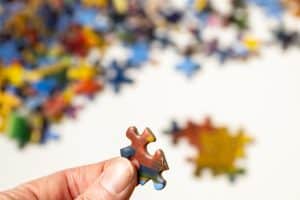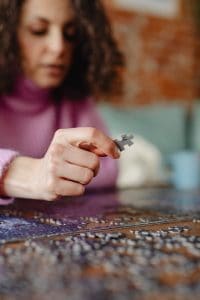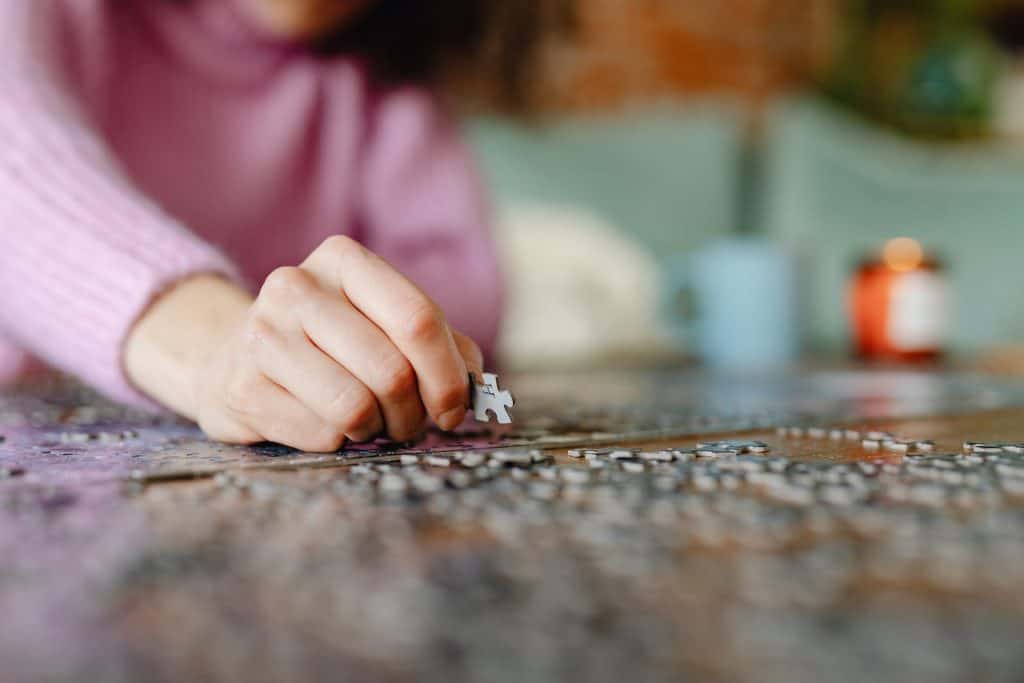Stroke survivors often face challenges in various aspects of their lives, including fine motor skills, problem-solving abilities, and overall quality of life. In this context, the question arises: are jigsaw puzzles good for stroke patients?
Jigsaw puzzles have long been hailed as a wonderful puzzle-solving companion, offering not only entertainment but also cognitive benefits. In recent years, there has been a growing interest in exploring the therapeutic potential of jigsaw puzzles, especially for individuals recovering from a stroke.
The Benefits of Jigsaw Puzzles for Stroke Survivors
1. Fine Motor Skills Improvement
Jigsaw puzzles require the precise coordination of hand movements and visual perception, making them an ideal activity for enhancing fine motor skills. Stroke survivors, who may experience difficulties in controlling their movements, can benefit significantly from the precision and control demanded by fitting puzzle pieces together.

2. Cognitive Stimulation and Problem-Solving Skills
Engaging in jigsaw puzzles stimulates cognitive functions such as memory, concentration, and problem-solving skills. These mental exercises are particularly valuable for stroke survivors who may be working on rebuilding their cognitive abilities. The challenge of piecing together a puzzle can contribute to the reactivation of neural pathways and the improvement of cognitive functions.
3. Emotional and Psychological Well-being
Recovering from a stroke can be emotionally taxing, and jigsaw puzzles provide a therapeutic outlet. The sense of accomplishment derived from completing a puzzle can boost confidence and positively impact the emotional well-being of stroke survivors. Additionally, the meditative nature of puzzle-solving can serve as a relaxing and enjoyable activity, promoting a sense of calm and reducing stress.
4. Social Engagement
For stroke survivors, social interaction is crucial for overall well-being. Jigsaw puzzles can be a shared activity, encouraging interaction with family members, friends, or caregivers. This social engagement is vital in preventing isolation and enhancing the overall quality of life for stroke survivors.
Jigsaw Puzzles vs. Other Cognitive Activities
While jigsaw puzzles offer numerous benefits, it’s essential to consider how they compare to other cognitive activities commonly recommended for stroke survivors, such as crossword puzzles and word searches.
1. Versatility of Jigsaw Puzzles
Unlike certain age-related conditions that may limit participation in specific cognitive activities, jigsaw puzzles are versatile and adaptable to various cognitive levels. Stroke survivors can start with simpler puzzles and gradually progress to more complex ones as they regain cognitive abilities.
2. Holistic Cognitive Engagement
Jigsaw puzzles engage multiple cognitive functions simultaneously. They require visual-spatial reasoning, memory recall, and problem-solving skills, offering a comprehensive cognitive workout. This holistic approach can be particularly beneficial for stroke survivors aiming to rebuild a range of cognitive abilities.
3. Social Aspect of Jigsaw Puzzles
Unlike solitary activities like crossword puzzles or word searches, jigsaw puzzles can be a group activity. This social engagement adds an extra layer of therapeutic benefit, promoting communication and cooperation among stroke survivors and their social circles.

Incorporating Jigsaw Puzzles into Stroke Recovery Programs
1. Professional Caregivers and Stroke Recovery
Professional live-in caregivers play a crucial role in supporting stroke survivors in their daily lives. Introducing activities like jigsaw puzzles into a daily routine can be part of a comprehensive stroke recovery plan. Caregivers with professional training understand the importance of cognitive stimulation and can tailor activities to the individual needs of stroke survivors.
2. Comprehensive Alzheimer’s, Dementia, and Parkinson’s Care
Jigsaw puzzles are not only beneficial for stroke survivors but also for individuals dealing with other neurological conditions. Professional caregivers providing comprehensive Alzheimer’s, dementia, and Parkinson’s care recognize the importance of cognitive activities in maintaining and improving the quality of life for their elderly clients.
Final Thoughts: Are Jigsaw Puzzles Good for Stroke Patients?
In conclusion, the question “are jigsaw puzzles good for stroke patients” can be answered with a resounding yes. Jigsaw puzzles offer a wonderful puzzle-solving companion for stroke survivors, contributing to the improvement of fine motor skills, cognitive functions, and emotional well-being. They provide a versatile and engaging activity that can be tailored to the individual’s abilities and preferences.
As part of a holistic approach to stroke recovery, incorporating jigsaw puzzles into daily routines, under the guidance of professional caregivers, can significantly enhance the overall quality of life for senior stroke survivors. In the journey of recovering from a stroke, the seemingly simple act of connecting puzzle pieces can become a powerful tool for rebuilding not only physical abilities but also a sense of accomplishment, social connection, and joy.

